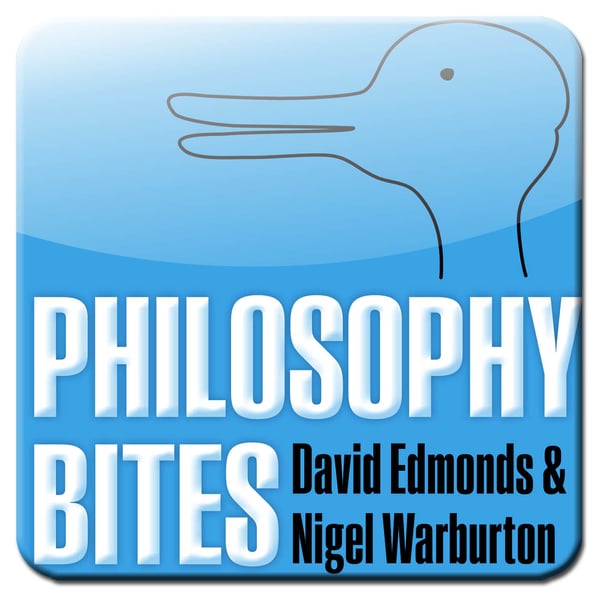Rom Harre on the Linguistic Turn in Philosophy
Philosophy Bites
Nigel Warburton
4.6 • 2K Ratings
🗓️ 10 November 2013
⏱️ 16 minutes
🧾️ Download transcript
Summary
For this episode of the Philosophy Bites podcast Rom Harre discusses and illustrates the so-called Linguistic Turn in Philosophy, the focus on actual uses of language that was advocated by the later Wittgenstein, J.L. Austin, Gilbert Ryle and others.
Transcript
Click on a timestamp to play from that location
| 0:00.0 | This is Philosophy Bites with me Nigel Warburton and me David Edmonds. |
| 0:07.0 | If you enjoy Philosophy Bites please support us. |
| 0:10.0 | We are currently unfunded and all donations would be gratefully received. |
| 0:14.0 | For details go to W.W. philosophy bites. |
| 0:18.0 | com. |
| 0:19.0 | Vickenstein published only one book in his lifetime, |
| 0:22.0 | The Traptatus Logico Philosophagus. Shortly after it came out, he began |
| 0:26.5 | to have second thoughts about some of its fundamental tenets, thoughts which eventually |
| 0:31.1 | ended up in his philosophical investigations. |
| 0:34.0 | At this stage he was teaching primary school children in southern Austria |
| 0:37.8 | and becoming interested in how language was actually used |
| 0:41.0 | rather than in its underlying logical form. |
| 0:44.1 | The distinguished philosopher Romharae, who's still teaching into his ninth decade and who divides |
| 0:48.9 | his time between Oxford and Georgetown, says this marks a crucial phase in contemporary philosophy, the linguistic turn. |
| 0:56.0 | Romhare, welcome to Philosophy Bites. Thank you very much. I'm glad to be here. |
| 1:00.9 | The topic we're going to focus on is the linguistic turn in philosophy. |
| 1:05.2 | Could you just begin by saying what the linguistic turn was and is? |
| 1:09.7 | Well we have to go back to the beginning of the 20th century and the two great figures of that |
| 1:14.9 | area, Bertrand Russell and Lubbly Bookenstein. Russell came up with a quite brilliant idea |
| 1:21.1 | that most philosophical problems could be resolved by bringing to light |
| 1:26.0 | the logical form of the propositions in which they were expressed. Of course this |
| 1:31.8 | involved various assumptions |
... |
Please login to see the full transcript.
Disclaimer: The podcast and artwork embedded on this page are from Nigel Warburton, and are the property of its owner and not affiliated with or endorsed by Tapesearch.
Generated transcripts are the property of Nigel Warburton and are distributed freely under the Fair Use doctrine. Transcripts generated by Tapesearch are not guaranteed to be accurate.
Copyright © Tapesearch 2025.

